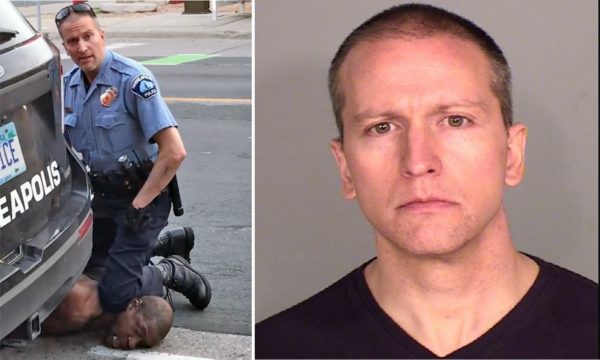‘Take Me Back a Year’: Derek Chauvin’s Trial Security Guard Says Former Cop Expressed Some Sort of Remorse, Details Measures to Keep Him Safe from Possible Poisoning
Veteran security expert Scott Yelle has broken his silence when it comes to detailing the measures he took to keep convicted murderer Derek Chauvin alive during his very public trial for charges related to the death of George Floyd.
Chauvin, a former Minneapolis police officer, was found guilty of second-degree unintentional murder, third-degree murder and second-degree manslaughter for kneeling on Floyd’s neck during a May 2020 arrest that ultimately led to the Black man’s death. This past June, the former cop of two decades was sentenced to 22.5 years in a maximum security prison.
Now, nearly three months after Chauvin learned his fate, Yelle says he can only recall his former client expressing something akin to remorse a single time. “I said, ‘Is there anything I can do for you?’ And he said, ‘You can take me back a year,’ ” Yelle told “Inside Edition.”
He described the disgraced ex-law enforcement member as being shy. “He is a real process oriented, regimented individual,” said Yelle. Though he won’t boast of who he has protected throughout his career, he said the list includes very notable people; Chauvin is simply the one he has opened up about protecting.
“He was very, very methodical in everything he did,” he continued when discussing who he observed Chauvin to be. “It just always has to be the same way without fail, no exception.”
For 44 days Yelle managed the logistics of transportation, security details and the handling of daily death threats. His concerns included outraged protesters attempting to cause the death of Chauvin, and the constant threat of a barrage of violent acts such as protesters throwing rocks, bricks and Molotov cocktails.
“This was some agitator’s Super Bowl,” he said. He added that during the trial Chauvin was not kept in police custody, but instead for his own safety was transported across state lines to Wisconsin and housed in an unsuspecting suburban neighborhood. There, Chauvin was given a disguise and allowed to go outside and shop while flanked by security on all sides.
While ensuring Chauvin’s safety at all times was nightmarish, nothing proved more concerning than the daily commutes to the courthouse where protesters awaited a glimpse of Floyd’s murderer. Yelle said several bulletproof SUVs equipped with gas masks, bulletproof vests and more were utilized for transportation.
They even stayed on the ready by securing nearby safe houses in case an emergency arose, and by monitoring social media.
“What Snapchat does is actually will create, kind of like a weather map,” said Yelle of how his team utilized the social platform’s map feature to monitor movement. “And it was a very red, high concentration of snaps being disseminated out in this particular area, so we knew to stay away.”
Chauvin and three other cops on the line for their roles in Floyd’s death each have entered not guilty pleas against allegations they violated Floyd’s civil rights.

